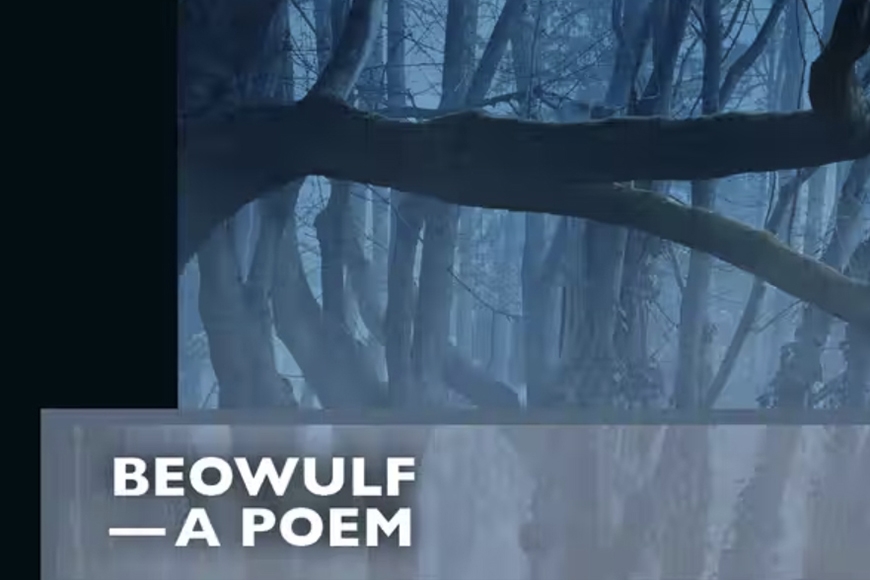New Pages Summer 2022
Add the below books to your TBR pile, and dig in!
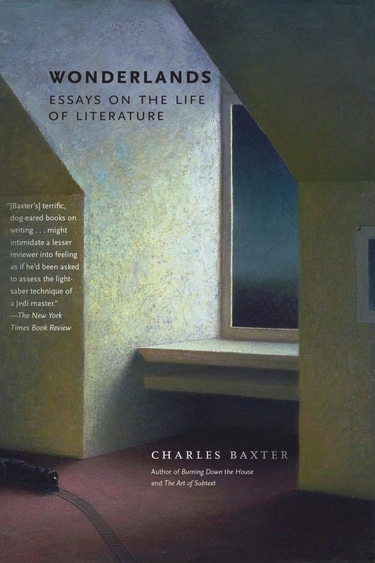
Wonderlands: Essays on the Life of Literature
Graywolf Press, July 12
From Publishers Weekly: “Novelist Baxter (The Sun Collective) combines memoir with writing tips in this eclectic collection. In ‘The Request Moment,’ he makes a case that inserting a request into a story can save ones that ‘sit there’ and do nothing, while ‘Inventories and Undoings’ offers a reading of William Maxwell’s So Long, See You Tomorrow and a reflection on his experience sorting through his dead brother’s belongings. In the title essay, Baxter recounts a course he taught at the University of Minnesota on ‘seemingly haunted narratives,’ with Toni Morrison’s Song of Solomon and Jean Rhys’s Good Morning, Midnight as examples: ‘you know you’ve entered a Wonderland when someone says, “There’s something bad and weird in the air,”’ he writes. Baxter’s voice is erudite, witty, and humble, and he brings his observations together with smart quips on the writing life: ‘I think writers should make their own mistakes.... Why should anyone try to avoid failure, mistakes, heartbreak, sorrow, drunkenness, sexual confusion, and apathy?’ Budding novelists, take note.”
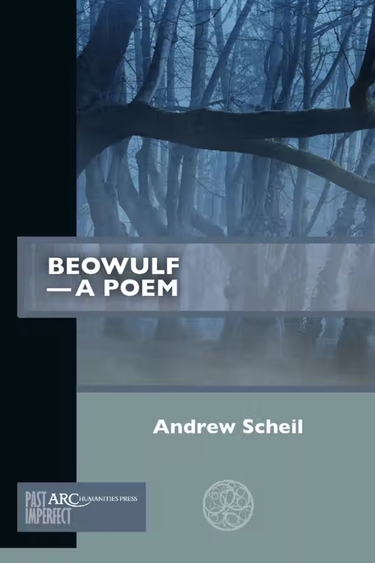
Beowulf—A Poem
Arc Humanities Press, Past Imperfect Series, 2022
From the publisher: “This book presents a passionate literary argument for Beowulf as a searching and subtle exploration of the human presence. Seamus Heaney praised Beowulf as ‘a work of the greatest imaginative vitality’: how is that true? The poem's current scholarly obsessions and its popular reception have obscured the fact that this untitled and anonymous 3182-line poem from Anglo-Saxon England is a powerful and enduring work of world literature. Beowulf is an early medieval exercise in humanism: it dramatizes, in varied and complex ways, the conflict between human autonomy and the ‘mind-forg'd manacles’ of the world. The poem is as relevant and moving to any reader today as it was during the early Middle Ages. This book serves both as an invitation and introduction to the poem as well as an intervention in its current scholarly context.”
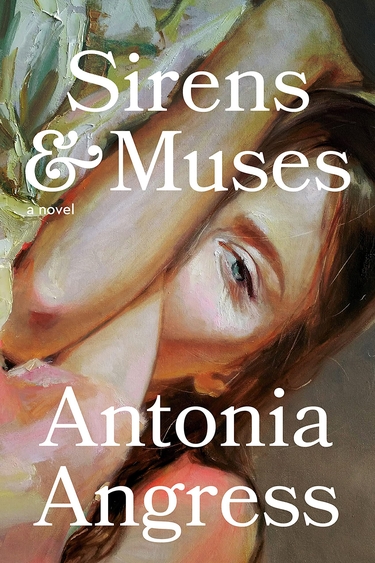
Sirens and Muses [fiction]
Ballantine Books, July 12
From Shelf Awareness: “Spoiled rich kids at a New England art college; self-professed anti-establishment types who film themselves eating and call it art; a washed-up artist taking temporary teaching positions and gobbling Xanax to get by—it sounds like the stuff of parody. Make no mistake: Sirens and Muses can be wickedly funny. But it's with a straight face that Antonia Angress has written her exceedingly good debut novel, a shrewd and expertly sustained rumination on what it takes to be a self-supporting artist and whether it's even worth it…. Sirens and Muses follows four individuals, finessing the relationships that exist among them, and otherwise rounding out their characters. The novel's plot is gripping, but equally intriguing are the questions Angress's characters ask themselves: How important is it to resist the art market's capitalist trappings? When does political art become propaganda? How does one know if committing oneself to the creative life is the right choice? Angress, of course, need not wonder.”
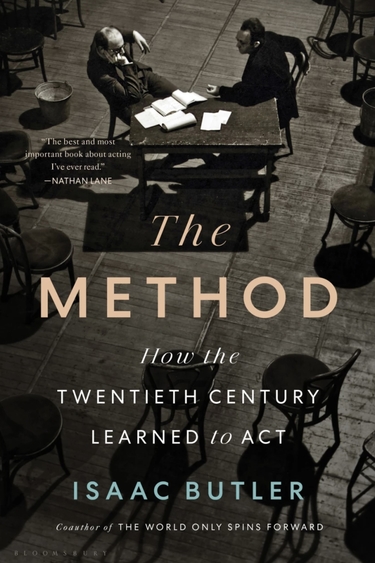
The Method: How the Twentieth Century Learned to Act
Bloomsbury, 2022
From the Los Angeles Times: “Isaac Butler’s engaging and meticulously researched history chronicles the way presentational acting—in which the spectator is aware the actor is performing—shifted to perezhivanie, or an actor experiencing her role so truthfully that the audience forgets she is acting. Butler refers to this transformation as a ‘revolution’ that began in 1898, when Konstantin Stanislavski, largely influenced by his contemporaries—Tolstoy, Chekhov and literary critic Vissarion Belinsky—began a decade-long dive that produced the Stanislavski System, in which an actor could reliably employ perezhivanie whenever called upon to perform.... Like a good 19th-century omniscient novelist, Butler hops seamlessly among his characters’ points of view while recounting their lives and times…. Butler’s history is an indispensable account of a revolution in acting that ramified beyond the theater.”
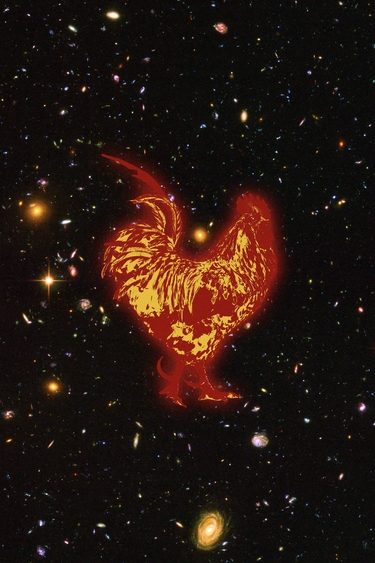
Tropical Sacrifice [poetry]
Birds LLC, 2022
From the publisher: “Tropical Sacrifice is a wishbone against a fascist heart / a prophetic, dream-filled narrative based on the spiritual journey of a chicken. Used for sacrificial ritual in Afro-Brazilian religion, the chicken becomes a re-enchantment of the poet's ancestry. Her superior vision gives access to histories of genocide and ecocide, opening a portal to Indigenous, Afro-diasporic, queer, and nonhuman worlds. From the favela to the Amazon to the astral plane, it is the half-winged bird who escapes the factory farm, inviting voices to bleed out of the sky.”
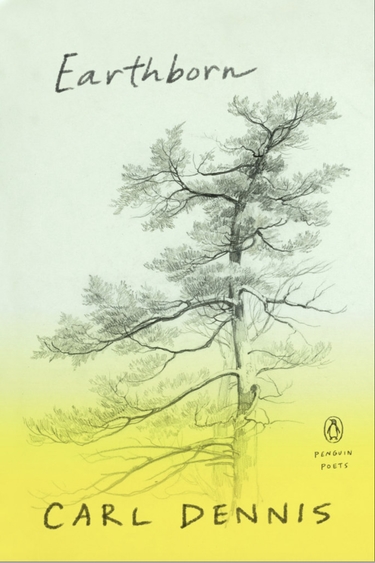
Earthborn [poetry]
Penguin Random House, 2022
From BookPage: “The 14th book of poetry from Pulitzer Prize-winning author Carl Dennis is a rich exploration of our relationship to nature in a time of environmental instability. Dennis addresses global warming in ‘Winter Gift’: ‘Now it seems right to ask / If winter, though barely begun, is spent, / So hesitant it appears, so frail.’ In ‘One Thing Is Needful,’ he enjoins us to act: ‘it’s time to invest / In the myth of a long-lost Eden.’ Religion and mortality are recurring themes. Dennis’ poems unfold at a relaxed pace, through long lines, considered and meditative, that accommodate a fullness of thought. As he examines both our lesser drives and finer desires as custodians of the planet, he holds out hope that we can be better humans, and the sentiment makes Earthborn a uniquely comforting volume.”
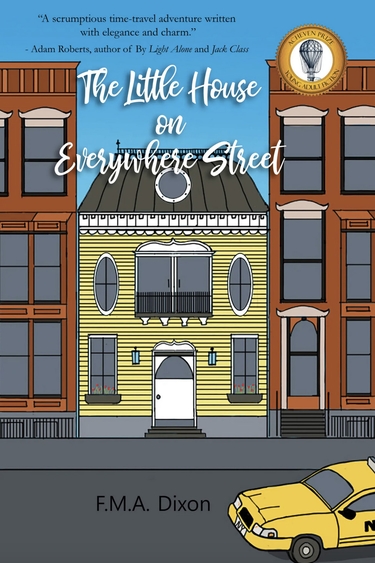
The Little House on Everywhere Street [YA fiction]
Fitzroy Books, 2022
From the publisher: “The fabulous Redmaynes seem able to live every day in three cities at once: London, Paris, and New York. Somehow. The three lucky Redmayne children—George, Felice, and Emile—believe they know all about their extraordinary house and its many secrets. But, alas, no, they do not. And when they begin to investigate, disaster strikes: George and Felice accidentally misplace their younger brother in time, with the result that the entire family must unite to find the poor lad and bring him home. A whirlwind plot ensues that involves Shakespeare, a ship's monkey, a packet of M&Ms, a red pen, and one or two, erm, unfortunate changes to history.... Simultaneously a rip-roaring adventure through time and space and the story of a family—and more specifically, about what makes for a happy family—this prize-winning novel will entertain and delight young adult readers of all ages.”
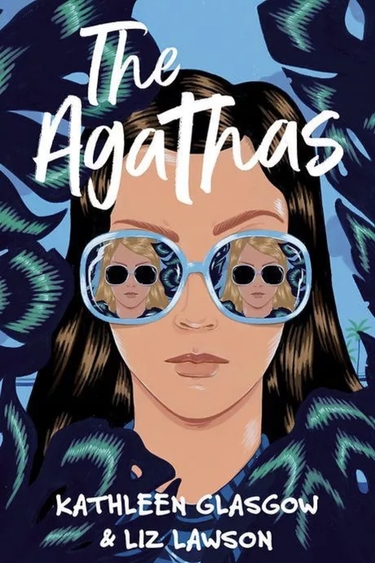
The Agathas [YA fiction]
Delacorte, 2022
From Kirkus Reviews: “Seething at the oddly lackadaisical response of local police to the disappearance of her former BFF on Halloween, 17-year-old Agatha Christie fan Alice Ogilvie enlists Iris Adams, her peer tutor, to launch an inquiry that not only bears immediate fruit in the form of a battered corpse at the base of nearby seaside cliffs, but leads to a veritable flood of obvious but conflicting clues and revelations that point to, and away from, foul play. Which was it? As the two gather and struggle to make sense of their evidence in traded-off chapters (with help from a squad of enthusiastic would-be fellow sleuths and a savvy public defender with flexible ethics), readers quickly twig to the fact that they themselves are nursing secrets…. A generous dollop of homage to the grande dame of mystery plus buckets of clues and conundrums to savor.”
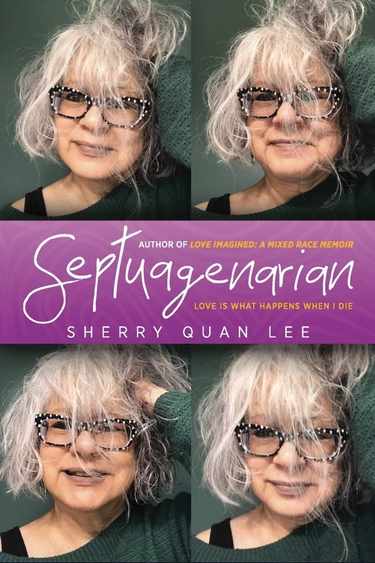
Septuagenarian [poetry]
Modern History Press, 2021
From writer David Mura: “I've been reading Sherry Quan Lee's work for almost thirty years and her voice keeps getting stronger, more urgent, deeper. In Septuagenarian, she continues to write out of her past, ‘the Black/Chinese/girl passing for white,’ but the range of her voice is wider now, both inward and outward, and it's anchored by a wisdom that can only be achieved through struggle and time. This is a significant, heartfelt work, one that will help readers to understand not only the author and her life, but also America itself—what we have been, what we are, and, hopefully, what we might become.”
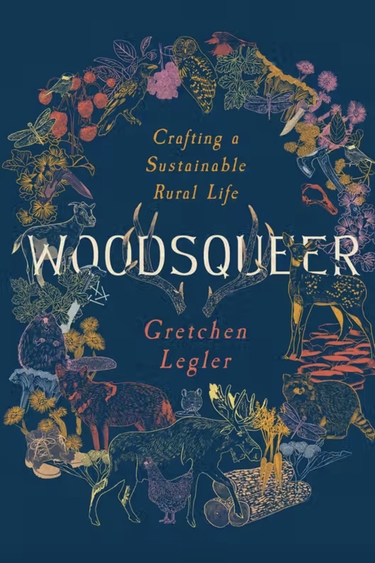
Woodsqueer: Crafting a Sustainable Rural Life
Trinity University Press, 2022
From the Boston Globe: “A warm and clear-eyed book... detailing an intimate connection to place and people as Legler and her partner opt for a slower pace, closer to nature. Even in its challenges, she makes a strong case for the deep value in knowing the plants and animals where you live, the joy and compassion that knowledge and connection provokes, not just for the sparrows, the milkweed, the doe, but also for one another and for our own selves. The book is as much a case for the soul-level nourishment and healing that is possible when we’re open to learning from land, as it is a description of the texture of life lived that bows away from the pace and ease of modern life, and how it offers, over time, a bridge to 'the pulsing, thrumming energy' that joins us all, human, plant, creature."
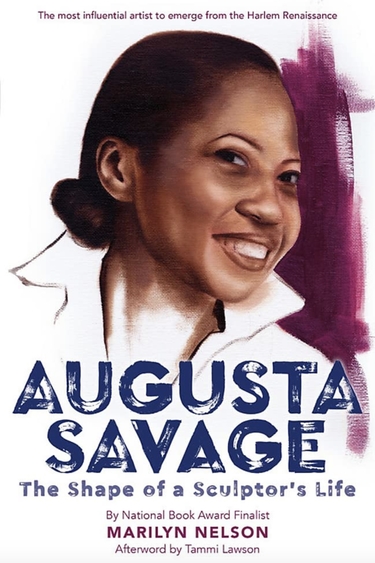
Augusta Savage: The Shape of a Sculptor's Life [YA poetry]
Christy Ottaviano Books, 2022
From School Library Journal: “Influential Harlem Renaissance artist Augusta Savage (1892–1962) rarely had the money to cast her art in bronze. Instead, what survives of her work, collected in major museums all over the country, is made of humble materials like plaster and clay. Her sculptures are realistic, insightful, and compassionate, much like the sure-footed poetry in this book by celebrated author Nelson. The artist's life—what is known of it—is related largely in the first person. Poems are paired with archival photos and reproductions of artwork. This psychological portrait gathers the artist's natural talent, technical expertise, and love of teaching and creating, balanced against the restrictions she faced due to poverty, racism, and misogyny, to leave readers with a woman as real and dimensional as the portraits she left the world. A master poet breathes life and color into this portrait of a historically significant sculptor and her remarkable story.”
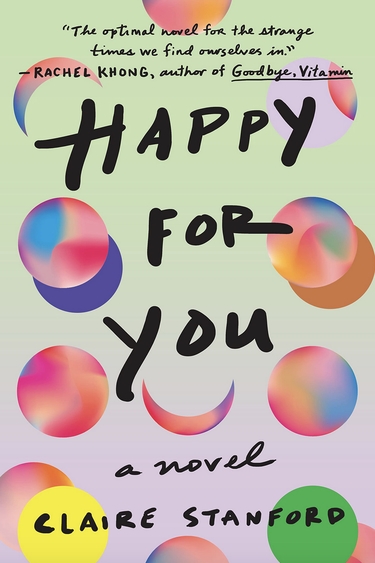
Happy for You [fiction]
Viking Books, 2022
From Wired: “At first glance, Claire Stanford’s Happy for You seems like it could be the newest entry into a micro-genre of fiction and memoir I’d call ‘girl walks into tech company’—The Circle, The Startup Wife, Uncanny Valley, etc. After all, the story begins when protagonist Evelyn Kominsky Kumamoto ditches her philosophy doctorate to work for the 'third most popular social media company' on a project about measuring happiness. While Stanford’s portrait of a tech company is funny, trenchant, and exactly as barbed as it should be about life in Big Tech, Happy for You is up to something else. The novel is really a meditation on happiness wrapped inside a Silicon Valley satire. It succeeds on the strength of its characterization of Evelyn, who is at a crossroads in her personal life and intent on living inside the emotional nuances her workplace is intent on stamping out.”
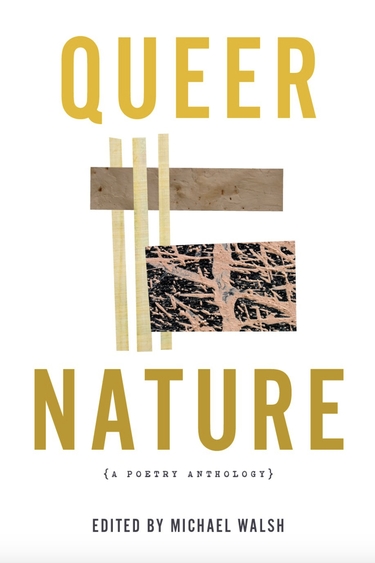
Queer Nature [poetry anthology]
Autumn House Press, 2022
From the publisher: “This anthology amplifies and centers LGBTQIA+ voices and perspectives in a collection of contemporary nature poetry. Showcasing over 200 queer writers from the 19th to the 21st century, Queer Nature offers a new context for and expands upon the canon of nature poetry while also offering new lenses through which to view queerness and the natural world. In the introduction, editor Michael Walsh writes that the anthology is ‘concerned with poems that speak to and about nature as the term is applied in everyday language to queer and trans bodies and identities.’ The anthology features poets including Elizabeth Bishop, Richard Blanco, Kay Ryan, Jericho Brown, Allen Ginsberg, Natalie Diaz, and June Jordan, as well as emerging voices such as Jari Bradley, Alicia Mountain, Eric Tran, and Jim Whiteside.”
